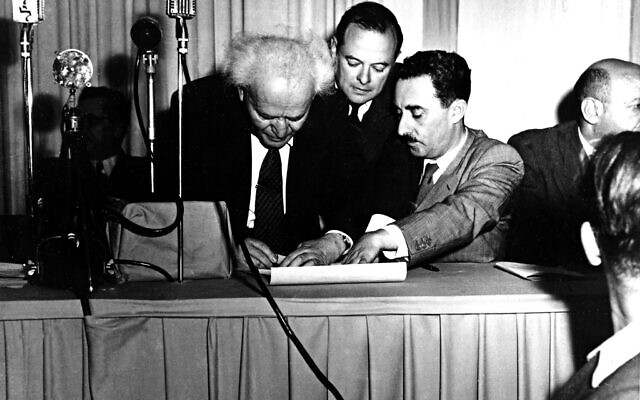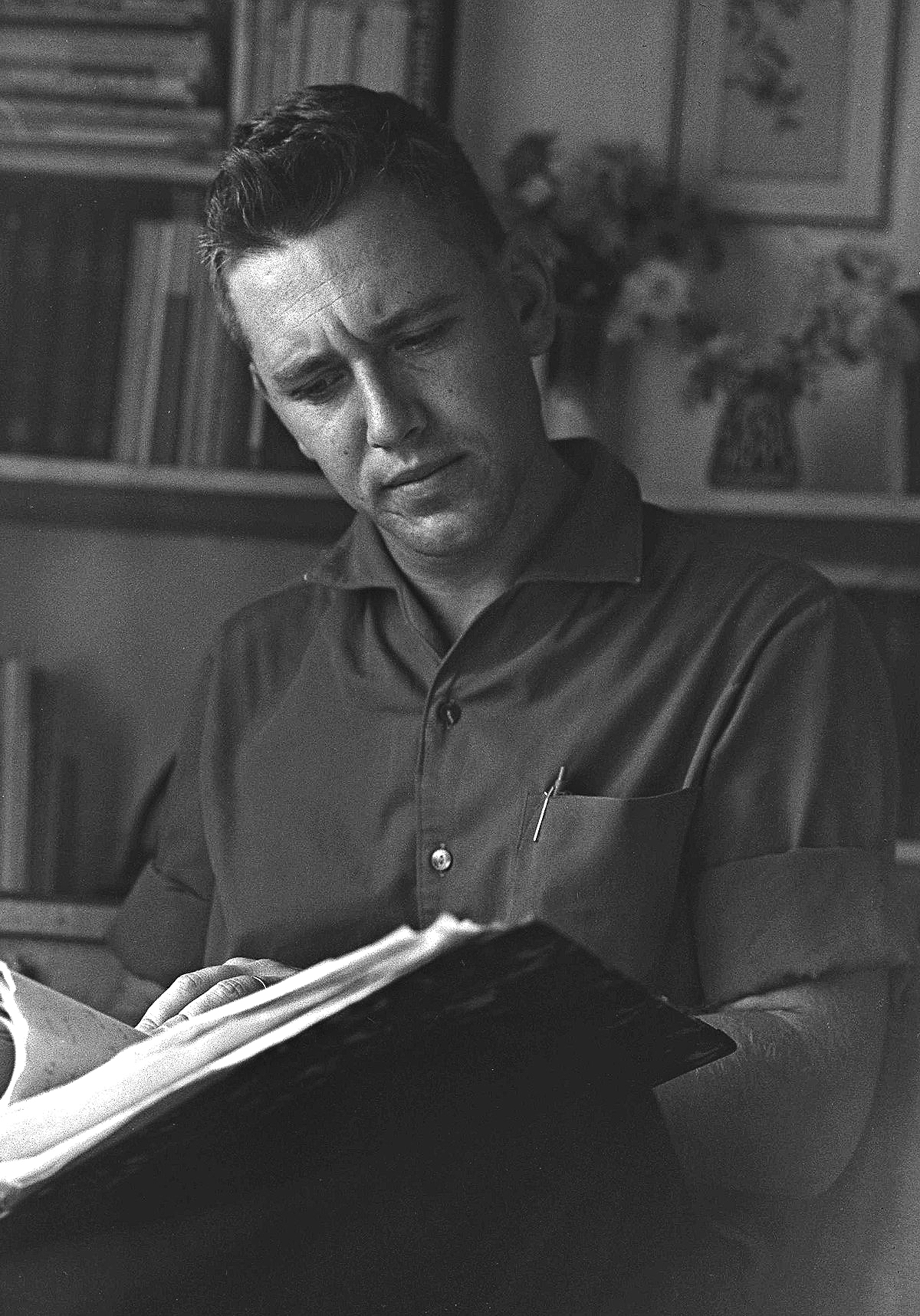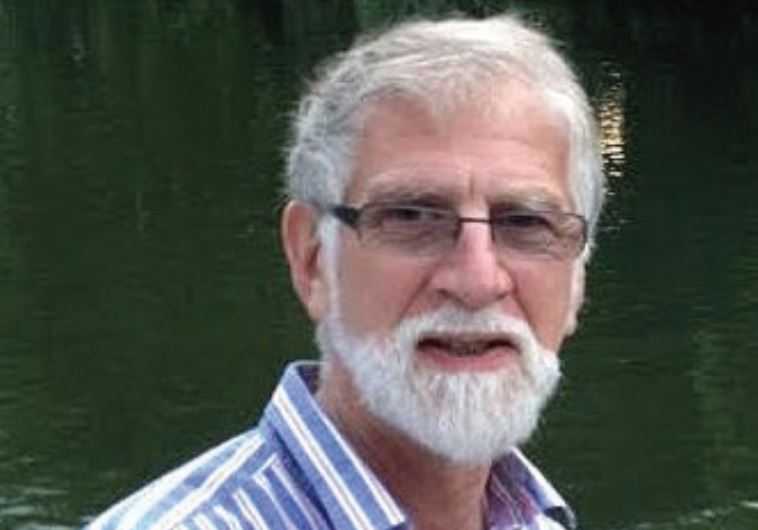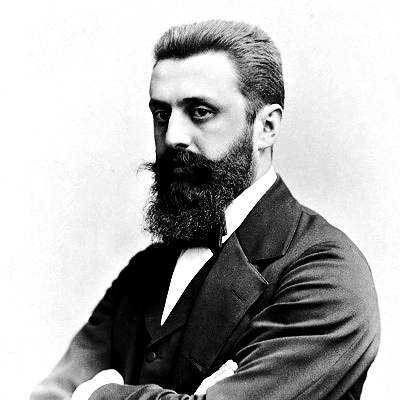OPINION: The evolving approach of British Jews to Israel over 75 years
With Israel at a key moment in its history, facing internal chaos and external threats, now is not the time for laments or indecision, says Colin Shindler

The founding of a Hebrew republic in the Land of Israel in May 1948 changed history. For Jews, there is only before and after.
The proclamation of the state took 32 minutes. A few hours later Egyptian aircraft were bombing Tel Aviv as worshippers rushed home from shul. The Chief Rabbi’s office in London issued an outline of a special Shabbat service of thanksgiving, expressing thanks they had lived to see this day.
It decreed Shir Hama’alot – usually associated with grace after meals on Shabbat and festivals – be recited. “When God brought back the exiles to Zion, it was as if we were in a dream — our mouths filled with laughter, our tongues bursting with song.”
Against all odds, Zionism prevailed and other ideologies that wished to resolve the Jewish problem — assimilation, conversion, Bundism, Communism — failed.
Zionism wanted to create not only a state but also a new society unlike the ones many Jews had escaped from; 1948 was full of hope and idealism as well as the reality of the hostility of Arab states.

The situation began to change in the UK after the Six Day War in 1967 and conquest of the West Bank. Small groups in London such as Siah, Young Mapam and Breira, following Amos Oz’s call for a two-state solution, challenged the accepted communal wisdom. Peace Now then emerged in the wake of the Israeli invasion of Lebanon in 1982 — and the duplicitous explanation for it proved to be a watershed for those who had been born since 1945.
The previous generation which had lived through the Nazi destruction and the rise of Israel would not entertain a scintilla of criticism. Jewish unity then was identified solely with Jewish uniformity. Dissenters were regarded as beyond the pale. Chief Rabbi Immanuel Jakobovits had deep reservations about Israeli government actions in 1982 and was rebuked publicly by colleagues and congregants alike.
Fast-forward to 2023 and figures such as Itamar Ben-Gvir and Bezalel Smotrich, from that far-Right community from which Yitzhak Rabin’s assassin, Yigal Amir, had also emerged, had moved from the political fringe to the heart of government.
In the 2022 election, their joint list secured 14 seats, utilising the brand name of ‘Religious Zionism’. Smotrich had spent six weeks in police custody for his actions prior to Rabin’s murder while Ben-Gvir revered the memory of Rabbi Meir Kahane, a figure with a talent to divide and broadly detested in most sections of the Diaspora.

The advent of the internet allowed British Jews to inform themselves about events in Israel immediately without intermediaries. The development of demographic units in the community meant the opinion of the Jew in the street could count as well as those in leadership roles in Jewish organisations.
Yet while many sections of the UK community including a revitalised Board of Deputies and public figures have united to condemn any decision to remove the checks and balances that ensure politicians adhere to the rule of law, central orthodoxy stays ominously silent.
Seventy-five years after the establishment of the state, hundreds of thousands of Israelis now march every Saturday night to reclaim the vision of the founders and to stand against those who wish to tarnish it.
The cry that ‘the House of Israel’ should not be divided is an honourable one. The reality however is this deep division is due solely to Netanyahu’s proposals, undermining the state’s foundations and blurring its founders’ vision. UK central orthodoxy in the UK has effectively parcelled out comments about moral conduct in public office in Israel to Masorti, Reform, the Liberals and secular intellectuals and academics.
Why then not start a separate initiative in the name of the founders of religious Zionism, Kalischer and Alkalai, Reines and Mogilever, Maimon and Bar-Ilan? Why allow the disciples of Meir Kahane to speak for religious Zionists today? Would this not quell the exasperation felt by many today?
Seventy-five years after the establishment of the state, hundreds of thousands of Israelis now march every Saturday night to reclaim the vision of the founders and to stand against those who wish to tarnish it.
They have been joined in solidarity by UK-based Israelis and many British Jews, significantly gathering in the cradle of democracy, Parliament Square and in the shadow of the statue of Oliver Cromwell, who allowed the Jews to return to England.

As the early Zionist, Ahad Ha’am, told Theodor Herzl, ‘a Jewish state’ — with all the moral meaning that this implied — was not the same as ‘a state of the Jews’ like any other.
In 2048 — on the centenary of the founding of the state — it is estimated there will be just under twelve and a half million inhabitants of Israel. A remarkable achievement of the few who left the hovels of the shtetl for a promised land.
The Jewish people are still on a voyage of discovery. As British Jews, committed to the state of Israel and to a just and democratic society in this corner of the Middle East, we should not be blown off course.
Now is not the time for laments and indecision. We all have choices.
- Colin Shindler was the first professor of Israel studies in the UK

Thank you for helping to make Jewish News the leading source of news and opinion for the UK Jewish community. Today we're asking for your invaluable help to continue putting our community first in everything we do.
For as little as £5 a month you can help sustain the vital work we do in celebrating and standing up for Jewish life in Britain.
Jewish News holds our community together and keeps us connected. Like a synagogue, it’s where people turn to feel part of something bigger. It also proudly shows the rest of Britain the vibrancy and rich culture of modern Jewish life.
You can make a quick and easy one-off or monthly contribution of £5, £10, £20 or any other sum you’re comfortable with.
100% of your donation will help us continue celebrating our community, in all its dynamic diversity...
Engaging
Being a community platform means so much more than producing a newspaper and website. One of our proudest roles is media partnering with our invaluable charities to amplify the outstanding work they do to help us all.
Celebrating
There’s no shortage of oys in the world but Jewish News takes every opportunity to celebrate the joys too, through projects like Night of Heroes, 40 Under 40 and other compelling countdowns that make the community kvell with pride.
Pioneering
In the first collaboration between media outlets from different faiths, Jewish News worked with British Muslim TV and Church Times to produce a list of young activists leading the way on interfaith understanding.
Campaigning
Royal Mail issued a stamp honouring Holocaust hero Sir Nicholas Winton after a Jewish News campaign attracted more than 100,000 backers. Jewish Newsalso produces special editions of the paper highlighting pressing issues including mental health and Holocaust remembrance.
Easy access
In an age when news is readily accessible, Jewish News provides high-quality content free online and offline, removing any financial barriers to connecting people.
Voice of our community to wider society
The Jewish News team regularly appears on TV, radio and on the pages of the national press to comment on stories about the Jewish community. Easy access to the paper on the streets of London also means Jewish News provides an invaluable window into the community for the country at large.
We hope you agree all this is worth preserving.





















